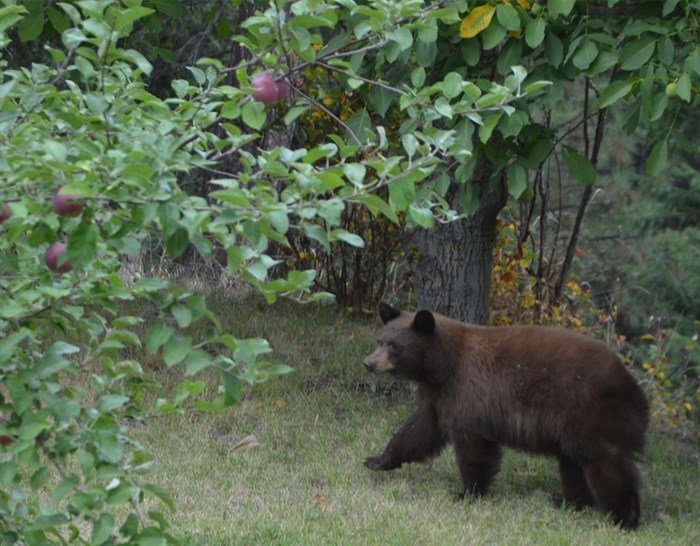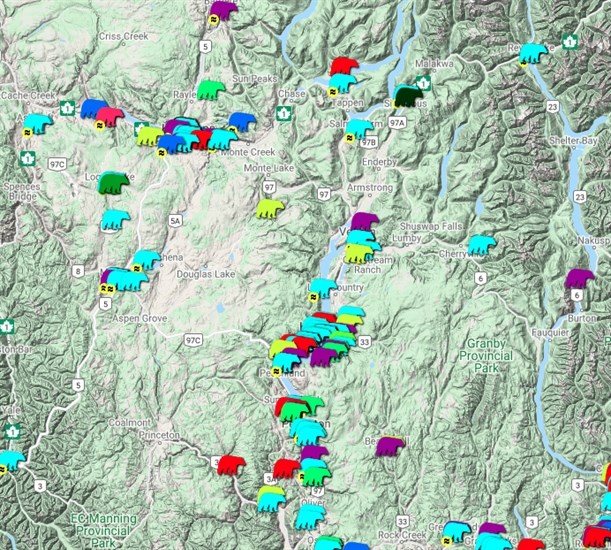
A black bear eyes up apples in a residential neighbourhood.
(MARSHALL JONES / iNFOnews.ca)
August 28, 2021 - 3:35 PM
Bears encounters are abundant in the B.C. Interior three weeks ahead of schedule this year and a conservation officer thinks the region's drought is the main culprit.
In the last two weeks, Merritt conservation officer Tyler Kerr said there have been 13 reports of bears in the Logan Lake community and noted bear activity has picked up.
He can’t say whether the Tremont Creek wildfire has pushed the bears into town but a significant amount of habitat has been burned due to the wildfire. Drought conditions are also impacting their regular food sources, he said.
“We’re probably seeing a little bit less of the natural food sources, berries might be dried up,” Kerr said.
The Thompson Okanagan region is currently in a Stage 4 drought which means impacts on ecosystems and people is "likely," according to the province.
READ MORE: Okanagan drought killing fish and exposing need for major water management change
Another reason there might be more bear sightings in the community is because the town was evacuated Aug. 12.
Kerr asked the district to put out social media posts warning residents of bears since they were seen in town while residents were evacuated.
“I’m sure emptying your garbage before you evacuate from your home is not the first thing that comes to mind,” he said.
Fruit trees, garage and bird feeders are all attractants to bears. With a lack of natural sources of food, they’re going to go for the easiest food source, he said.
Fewer people in town could have also meant more bears, he said.
Meg Bjordal, WildSafeBC Central Okanagan coordinator, said bears activity has increased and is about three weeks early this year.
A typical increase in bear foraging usually happens in September, she said. Around this time, bears are increasing their calorie intake to prepare for winter hibernation and with less food available at higher elevations, more are typically seen around cities.
She believes drought conditions are a main factor as well as wildfires in the area as bears will move to adjacent habitats and may pass through communities, she said.
Bjordal is also reminding residents to keep garbage cans secured. Now is not the time to be putting up bird feeders she's also asking residents to clean up ripe fruit from around fruit trees.
Wildlife conflicts can be reported to conservation officers by calling 1-877-952-7277.

Image Credit: SUBMITTED/WildSafeBC
To contact a reporter for this story, email Carli Berry or call 250-864-7494 or email the editor. You can also submit photos, videos or news tips to the newsroom and be entered to win a monthly prize draw.
We welcome your comments and opinions on our stories but play nice. We won't censor or delete comments unless they contain off-topic statements or links, unnecessary vulgarity, false facts, spam or obviously fake profiles. If you have any concerns about what you see in comments, email the editor in the link above.
News from © iNFOnews, 2021